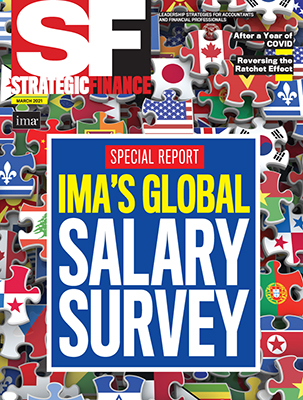In economist Milton Friedman’s Capitalism and Freedom, he discusses capitalism, social welfare, and the roles of government and business in a free society. He postulated, “There is one and only one social responsibility of business—to use its resources and engage in activities designed to increase its profits.” This concept became the basis of shareholder capitalism or primacy, which maintains that the sole purpose of a corporation is maximizing profitability and shareholder value. A corporation might provide better employee pay and benefits, improve the quality of its products or services, or increase its commitment to social programs in the communities in which it operates—actions that might appear to be undertaken at the expense of the company’s shareholders—but they weren’t entirely altruistic. Improved employee relations increased productivity, stronger customer loyalty strengthened the company’s competitive position, and an enhanced image in the community created goodwill, boosting the company’s value.
Other business leaders and economists take a different, perhaps more ethical approach—that the company’s purpose should be to serve the interests of all its constituencies, including customers, suppliers, employees, and the community at large. The recent surge of interest in corporate environmental, social, and governance (ESG) policies and corporate social responsibility (CSR) has led to wider acceptance of the ethical factors within a more expansive view of a company’s purpose.
A NEW STANDARD
The transition to this more inclusive paradigm gained new momentum in August 2019 when the Business Roundtable issued a Statement on the Purpose of a Corporation. Signed by 181 CEOs, the statement sets a new standard of CSR by replacing shareholder primacy with a balanced approach where companies operate for the benefit of multiple stakeholders. Signatories committed to:
- Delivering value to their customers,
- Investing in their employees,
- Dealing fairly and ethically with their suppliers,
- Supporting surrounding communities, and
- Generating long-term value for shareholders.
Shareholders may resist this change, fearing that a commitment to other stakeholders will necessarily have an adverse impact on the corporation’s profitability and the value of their investments. In his book Grow the Pie: How Great Companies Deliver Both Purpose and Profit, Alex Edmans contends that corporate executives historically have viewed the value of a business as a fixed pie; anything given to nonowner stakeholders in the way of better pay for employees or improved product pricing resulted in a reduction in profits. He argues that, in fact, it isn’t a zero-sum game; one group’s gains don’t necessarily come at the expense of another group.
To the extent that better employee wages increase productivity or that improved product pricing increases customer loyalty, the company’s bottom line can benefit, too. A well-run, responsible, and ethical company doesn’t just slice the pie differently; it grows the pie.
IMPACT ON MANAGEMENT ACCOUNTANTS
But how would a company that subscribes to this philosophy gauge its progress vis-à-vis the new paradigm? Management accountants may be called upon to develop and implement measurement and disclosure frameworks that provide information useful to the company’s investors as well as other stakeholders. This is challenging as the reporting will likely be largely qualitative. The indicators must be chosen with great care. See the IMA Statement on Management Accounting The Evolution of Accountability: Sustainability Reporting for Accountants.
Recognizing the need for more comprehensive reporting that incorporates nonfinancial indicators, several organizations have issued guidance that attempts to address the measurement issue. In September 2020, the World Economic Forum issued a set of “stakeholder capitalism metrics” that would provide ESG and CSR information useful to investors, financial markets, and society at large. Every business is encouraged to report on what it deems important to its own stakeholders, centered on four pillars:
- People: treatment of a company’s employees, including wage disparities, health and safety, diversity, and benefits;
- Planet: impact on the environment, such as greenhouse gas emissions and natural resource conservation;
- Prosperity: contributions to the community, including employment and tax payments; and
- Governance: companies’ mission, operating strategies, and commitment to high standards of ethical behavior.
A TIME OF CHANGE
Dissatisfaction with the distribution of wealth and opportunities is a significant cause of civil strife. Businesses are uniquely positioned to be catalysts for change and to play a large role in addressing these structural issues in an ethical manner. The broader view of the corporate purpose recognizes that a corporation’s interactions with other segments of society aren’t a one-way street, but rather they benefit the corporation as well both tangibly and intangibly. Committing to serve the interests of all of a corporation’s stakeholders isn’t just the right thing to do from an ethical standpoint. It’s essential to the long-term success and sustainability of the corporation.
Profit-oriented shareholder capitalism is giving way to a more ethical model that recognizes a company’s responsibilities to multiple stakeholders. This process requires buy-in and commitments from boards of directors and senior executives. There will be companies that publicly embrace stakeholder capitalism yet fail to actually implement any meaningful change.
Adopting this new approach must be more than a public relations strategy; rather, it must reflect a commitment to ethical conduct, operations, and initiatives that permeates the decision-making process from the C-suite through line management. Other attempts at nudging corporations toward increased ESG responsibility using ethical principles have had mixed results. It’ll be interesting to see if the Business Roundtable’s new balanced approach to corporate purpose gains traction and results in lasting change or if it’s business as usual.
IMA ETHICS HELPLINE
For clarification of how the IMA Statement of Ethical Professional Practice applies to your ethical dilemma, contact the IMA Ethics Helpline.
In the U.S. or Canada, dial (800) 245-1383. In other countries, dial the AT&T USA Direct Access Number from www.usa.att.com/traveler/index.jsp, then the above number.
The IMA Helpline is designed to provide clarification of provisions in the IMA Statement of Ethical Professional Practice, which contains suggestions on how to resolve ethical conflicts. The helpline cannot be considered a hotline to report specific suspected ethical violations.

March 2021


